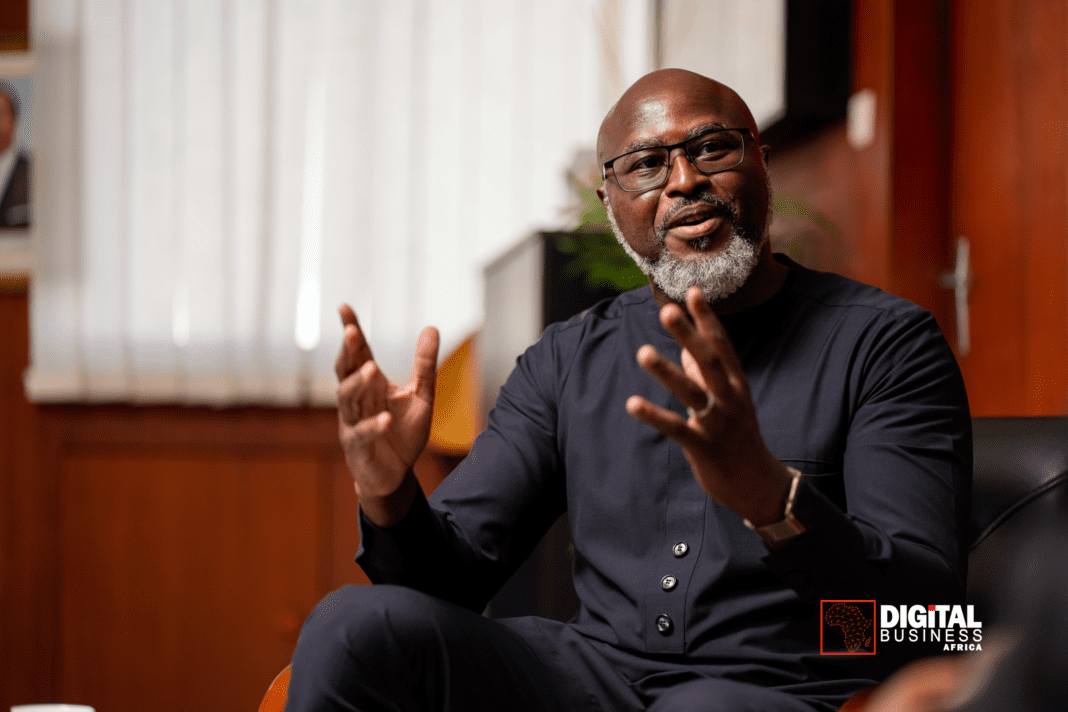[Digital Business Africa] – With 17 years of experience as CEO in West, Southern, and Central Africa, the current CEO of Orange Cameroun has been a critical player in the telecom revolution in Africa. Our editorial team spoke with this executive, who has led multiple companies through significant changes.
Digital Business Africa: Hello, Mister Patrick Benon! Thank you for this interview. You are a telecommunications engineer with a degree from the “Ecole Nationale Supérieure des Télécommunications de Paris” (Télécom Paris) and a PhD in Computer Science and Telecommunications Networks from the same prestigious school. Throughout your career, you’ve demonstrated exemplary leadership and a deep understanding of the African telecom market. How do you justify this longevity?
Dr. Patrick Benon: Indeed, I have been the CEO of major telecoms companies since 30 June 2007, when I was appointed as the head of Bénin Télécoms, the leading telecoms operator in Benin. After 4 years in this position, I joined the Orange Group, with my first job as CEO of Orange Centrafrique. Then, in December 2014, I joined Orange Botswana as CEO, where I served for almost seven years. Finally, in September 2021, I became the CEO of Orange Cameroun.
I am grateful to the Orange Group’s management, the Boards of Directors, and the countries’ authorities who have trusted me during my various appointments.
My longevity mainly comes from the good results obtained in the companies I’ve managed. These results have been quite good at an operational level (revenue increase, profitability, market share, etc.), developing local teams and supporting communities and economies in the countries where I have worked.
Digital Business Africa: The statistics on your achievements at the head of companies are impressive, especially the changes that occur as soon as you take the lead of a company. Your appointment as Head of Orange Centrafrique in 2021 came at a critical time, as the company was experiencing a drop in revenue and lagging behind its competitors. However, when you left in November 2014, the same company experienced significant growth of more than 40% and was second in the market before becoming number 1 a few years after your departure. The same thing happened at Orange Botswana, which you took over in a period of decline but experienced a growth of over 20% at your departure in 2021 before becoming number 1 on the market just a few years after you left. Something similar happened at Orange Cameroun, accelerating its growth under your management to over 18% in the first half of 2024. It is now leading the market, according to the figures published by the groups operating in Cameroon. How do you succeed at being such a serial transformer? What’s your recipe for achieving such results?
Dr. Patrick Benon: My recipe for success has always been the same: develop a robust strategy with my teams, entrust them with implementing it, and closely monitor the action plans defined together.
Three months after I arrived in Cameroon, I worked with my teams to develop our strategic plan, which we named “REPERES.” This plan clearly defined our strategic priorities, reflected in each letter in REPERES: R for growth, E for customer experience, P for people, E for efficiency, R for resilience, E for environment/social, and S for security.
These strategic priorities were broken down into objectives backed by precise, measurable performance indicators. We then formed project teams, known internally as ‘battles,’ to define and implement the action plans needed to achieve our strategic objectives. With Executive Committee members who sponsor the battles related to their activities, I attend the progress meetings of the projects, enabling quicker execution.
Above all, success must be sustainable if it is to be shared and felt by customers, staff, and communities through CSR (corporate social responsibility) programs.
Digital Business Africa: We understand that customer experience is one of your priorities. However, we can’t help but notice many complaints about your network’s quality. Could you please explain this situation to me? What solutions do you intend to implement regarding this issue?
Dr. Patrick Benon: Customer experience is our primary mission, so we treat it with utmost priority and rigor, focusing on three main areas:
- Network quality
- Offers and services
- Management of Complaints
Network quality is a significant concern for our customers and our authorities. Early in October 2024, the Minister of Posts and Telecommunications visited our headquarters in Douala after the Director General of the Telecommunications Regulatory Board had also expressed serious concerns. This shows the commitment of our authorities to finding solutions to the current issues, and we have taken good note of the directives received during these visits. We will strictly fulfill the commitments we made.
We started this year with a vast and promising network modernization program. This involves renewing and reinforcing our equipment throughout Cameroon. It is an unprecedented plan in terms of scale, which will significantly improve quality.
The first phase of modernization has been completed in Yaounde and Douala. A second phase is underway, and we have noticed a significant improvement in the technical indicators measuring the network’s quality. Of course, we still have work to do so all our customers can see this improvement.
After Yaounde and Douala, we intend to modernize all the cities of Cameroon before finally moving on to rural areas. The aim will be to provide the latest technologies to all, including high-quality 4G, and then prepare to launch the 5G.
However, emphasizing that we heavily depend on infrastructure that is not under our control, especially optical fiber, is essential. The poor availability of fiber seriously undermines our efforts to modernize and improve the quality of service. This could become the weak point in Cameroon’s telecommunications sector, wiping out all efforts made.
We analyze customers’ complaints in detail about offers and services, enabling us to take proactive or corrective action. The complaints index is our leading indicator, and we take a range of actions to reduce it, thus reducing the number of complaints.
Regarding customer care, we are active on all customer contact channels: call centers, shops, robots, and digital assistance through our applications and social networks. A wide-ranging multi-channel transformation program is gradually helping us improve our customer satisfaction rate.
Digital Business Africa: You said the staff must feel and share success. How do you ensure this in concrete terms?
Dr. Patrick Benon: Managing people-related issues is paramount in our REPERES strategic plan and is a priority for people. We have made it a battle to ensure that action plans are correctly implemented, with strict measurement of performance indicators.
Our leading indicator here is the eNPS (Employee Net Promoter Score), which enables us to measure employee satisfaction and the impact of our actions. In two years, from mid-2022 to mid-2024, we went from a negative score of -25 to a positive score of +30, which shows that employee appreciation has significantly improved.
We regularly conduct employee surveys to identify areas of complaint, for which we draw up action plans. Our current plans address several areas: employee appreciation, well-being, efficiency and performance, career and development, and diversity/inclusion/diversity.
Digital Business Africa: You also mentioned the importance of CSR for your company’s positioning. Can you tell us more about your actions and how you impact communities?
Dr. Patrick Benon: CSR is essential to our company’s sustainable development, which must be in perfect harmony with the environments in which it operates. Also, as an African, I am fully aware of the contribution telecommunications operators bring to the economies of our countries and the vital role we need to play as catalysts for development.
In Cameroon, we have two main pillars through which we implement our social initiatives: the Orange Digital Center (ODC) and the Orange Cameroun Foundation.
The ODC is a training center, a high-tech startup accelerator, and a gateway to a network of high-tech talent for Africans.
In October 2021, we inaugurated our first ODC in Cameroon. Because of the vital importance of this infrastructure in supporting youth and startups in the digital sector, I have decided, together with the Orange Cameroon Executive Committee, to set up an ODC in each of Cameroon’s ten regions.
I am delighted to announce that in 2024, we are already halfway to achieving our ambition, with the opening of an ODC in five of Cameroon’s ten regions. After opening our first ODC in Douala (Littoral Region), we have opened ODCs in Yaounde (Centre Region), Buea (South-West Region), Ngaoundéré (Adamawa Region), and Dschang (West Region).
Our Foundation is very active in the support of less privileged populations and women’s empowerment. To this end, we have deployed four significant programs in Cameroon:
- Orange Villages: building or renovating a school, a health center, and a water supply point in each selected village.
- Digital schools: providing schools with digital equipment (tablets, servers, digital content, etc.) to introduce children to digital technology early.
- Digital houses: providing women’s support centers with digital equipment (computers, tablets, training, etc.) to help empower women.
- Solidarity actions to help the less privileged populations and also in the event of disasters.
Finally, we strongly support our employees’ involvement in the company’s CSR initiatives through our recently launched program, Engage for Change. This program gives employees three days of leave dedicated to the company’s CSR actions.
Digital Business Africa: As the GM of Orange Cameroun, you established Orange Money Cameroun, a subsidiary focused on mobile financial services. What motivated this strategic move?
Dr. Patrick Benon: Creating a subsidiary for mobile financial services primarily responds to the regulatory constraints that require separating this activity area.
We are very proud to have Orange Money Cameroon as the first approved payment institution in Cameroon. To achieve this, we had to transfer two activities: from the partner bank issuing electronic money to Orange Money Cameroun and from Orange Cameroun to Orange Money Cameroun. This was a particularly long and complex process, and I would like to congratulate our teams who worked on this project and who were able to make it a success.
Digital Business Africa: We recall that on 24 November 2023, you launched your Max It application in Africa in the presence of Christel Heydemann, CEO of the Orange Group. How far has it come today?
Dr. Patrick Benon: We were highly honored at Orange Cameroun to be chosen as host for the African launch of the Max It app in the presence of the CEOs of the Orange Group and Orange Africa and the Middle East.
This event began a story that will mark an important milestone in Africa’s digital development.
Today, the Max It Super application is operational in 8 African countries and has over 12 million active customers, including over 2.7 million in Cameroon.
With the Max It Cameroon app, we were able to bring together in a single application three key platforms, enabling a better customer experience:
All Orange Cameroun telecommunications services are completely digitalized in a user-friendly interface;
The section dedicated to Orange Cameroun’s financial services in a completely secure and ergonomic manner;
A marketplace that provides an innovative platform with access to e-ticketing, exclusive entertainment, information content, and services that enable daily customer support by capitalizing on partnerships across several assets like agriculture, education, health, etc.
We have succeeded in positioning our e-ticketing services, which enable access to tickets during events through an electronic pass sent to the customer’s smartphone to be validated with a QR code. This feature is now widely used in several significant events in Cameroon, including official football matches, concerts, etc.
Digital Business Africa: How do you see Africa’s future, marked by global upheaval with the advent of generative artificial intelligence, 5G, and big data?
Dr. Patrick Benon: We are at a crossroads and must ensure that Africa takes full advantage of the digital revolution. The current digital revolution represents the fourth industrial revolution, and Africans have the possibility and duty to be fully involved. The three previous revolutions took place without Africa’s involvement, leading to a significant slowback in the continent’s development on a global level.
During the first industrial revolution, which began at the end of the 18th century, the invention of the steam engine and the massive extraction of coal made it possible to mechanize production and develop railway networks. The second industrial revolution started at the end of the 19th century with the invention of the internal combustion engine and the introduction of electricity, gas, and oil, which made mass production possible. The third industrial revolution, starting at the end of the 20th century with the advent of nuclear power and electronics, will allow the miniaturization and automation of production.
The fourth revolution we are experiencing is digitalization, which has several waves, such as high-speed internet connectivity, smartphones, social networks, Big Data, and artificial intelligence. As of now, its exact scope and impact have yet to be determined. But this latest revolution will affect our lives even more than the first three.
We must realize that we are at a decisive moment in our history and give ourselves a chance to be actors in this revolution, not just spectators. Recent developments in Africa’s telecommunications sector show we can pioneer technology. Indeed, the development of mobile financial services, which is primarily an African success, demonstrates that in terms of technology, Africa can be ahead of other continents.
Artificial intelligence needs big data and high-speed connectivity to operate. The technologies you mentioned are all interconnected and will profoundly impact the productivity of individuals, companies, and countries. All stakeholders (governments, businesses, etc.) need to understand the stakes and define transformation plans that will enable Africa and Africa to benefit from them and be competitive.
Digital Business Africa: We learned you were shortlisted for the prestigious “CXO of the Year” award at the AfricaTech Festival, held annually in Cape Town, South Africa. I suppose it is already a satisfaction for you…
Dr. Patrick Benon: I am honored to be nominated for the CXO of the Year at the Africa tech festival. This award recognizes outstanding leaders in Africa and their contributions to building teams, setting new standards, and achieving a clear vision in a rapidly changing business landscape.
This prestigious award culminates in an awards ceremony that brings together the world’s technology leaders, entrepreneurs, policymakers, and media, shaping Africa’s digital transformation in one evening.
The four other shortlisted candidates have good career paths and outstanding achievements. The public’s votes and the jury’s expert judgment will decide who will be the best for this year.
Digital Business Africa: After 17 years as a manager in a hyper-competitive sector in telecommunications, what motivates you every morning?
Dr. Patrick Benon: Every morning, I commit to giving my colleagues and partners the means to think and develop relevant innovations for our countries according to the best international standards. I am an Afro-optimist, and my determination to promote the development of our people and our continent motivates me daily.
Interview by Digital Business Africa

About Dr. Patrick Benon
Patrick BENON holds an engineering degree and a PhD from the École Nationale Supérieure des Télécommunications de Paris (Telecom Paris). Before returning to Africa to manage several companies, he started his career in France as a design engineer and marketing manager and then as a technology consultant for several international companies, such as Schlumberger and Accenture. He joined Benin Telecoms in 2006 and was appointed CEO in 2007. In 2011, he was appointed CEO of Orange Centrafrique until 2014. He continued his career as CEO of Orange Botswana from 2014 to 2021. He was then appointed CEO of Orange Cameroon in 2021, where he has been serving.








An explicite interview of very high magnitude.
As an eye witness the transformation in orange Cameroon has been swift and radical beyond reasonable doubt.
Dr Patrick BENON is a catalyst in telecom growth and development. We are proud & fortunate to have a man that can make things happen. In fact he thinks beyond the obvious.
Very great Top manager indeed programmed to succeed and most of all humanlly aware of his collaborators